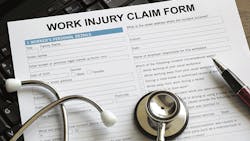A common union organizing tactic is to publicly accuse the target company of egregious safety violations, accompanied by filing worker complaints with the Occupational Safety and Health Administration (OSHA), part of the U.S. Department of Labor. And it's no secret that since President Obama took office, executive branch agencies and federal appointive bodies have untiringly promoted a pro-union agenda.
If you doubt that, you need look no further than OSHA's directive to its personnel last year to refer any safety whistleblower complaints that are filed too late with OSHA to the National Labor Relations Board because of its longer filing deadlines.
Another significant action helping unions and negatively impacting employers will come later this year when OSHA requires employers to file routine accident and injury reports electronically, then makes the reports public on the agency's website where unions and tort lawyers can easily sift through them.
Of more immediate concern to employers in logistics is the ever-widening range of OSHA violations, including imposing joint employer responsibility with temporary staffing agencies.
Last December OSHA leveled $162,500 in citations against an Anheuser-Busch InBev distribution facility in Jersey City, N.J., including $121,000 in "willful violations," stemming from the company's failure to train lift truck operators and remove defective lift trucks from service. Additional warehouse violations involved other lift truck hazards, obstructed exit routes, damaged storage racks and not providing chemical hazard communication training.
What should an employer do? The first step is to conduct a thorough safety audit of your operations to ensure you are in full compliance with OSHA standards and best practices. Make sure to use a lawyer specializing in this field, advises Valerie Butera, an attorney with the law firm of Epstein Becker Green.
An attorney recommending hiring an attorney—sounds self-serving, doesn't it? But consider her reasoning: In an inspection OSHA may demand to see audit reports to identify potential hazards in the workplace, "essentially using the employer's proactive audit against it and issuing citations based on hazards identified but not yet remedied," she points out.
But when an employer hires a lawyer to prepare an audit report, and the attorney then engages a safety and health professional to conduct the audit, the report is then protected from disclosure to OSHA by the attorney-client communication privilege.
Of course, expert legal advice also is needed to wend your way through the complicated legal minefield of an OSHA inspection. Training your supervisors how to handle an OSHA visit is crucial, for example. Best practices in documentation also are a must—failure to do so can lead to expensive reporting violations and undermine a defense against other charges.
A good example: OSHA now expects employers to demonstrate having trained employees in the complex new hazardous communication standards. It also requires employers to develop policies and train employees to avoid distracted driving. If it finds employer policies contributed to cell-phone related accidents, OSHA citations can carry maximum penalties of $70,000 per a "willful" or repeat violation, or $7,000 per "serious" violation.
Butera says the essential first step in preparing for an eventual OSHA inspection is creating and maintaining a strong safety culture. And that means you, she stresses. "Management at all levels should be involved in creating this culture, actively communicating with employees and being physically present where employees do their jobs."
In other words, management by walking around. "By visiting their worksites, employers have the opportunity to observe potential hazards with their own eyes and discover other potential hazards through conversations with employees," Butera says. These actions will not only assure employees that you are serious about safety, but about their overall job satisfaction as well, making potential union organizers' tasks all the more difficult.
David Sparkman is founding editor of ACWI Advance (www.acwi.org), the newsletter of the American Chain of Warehouses Inc., as well as a member of the MH&L Editorial Advisory Board.
About the Author

David Sparkman
founding editor
David Sparkman is founding editor of ACWI Advance (www.acwi.org), the newsletter of the American Chain of Warehouses Inc. He also heads David Sparkman Consulting, a Washington D.C. area public relations and communications firm. Prior to these he was director of industry relations for the International Warehouse Logistics Association. Sparkman has also been a freelance writer, specializing in logistics and freight transportation. He has served as vice president of communications for the American Moving and Storage Association, director of communications for the National Private Truck Council, and for two decades with American Trucking Associations on its weekly newspaper, Transport Topics.
